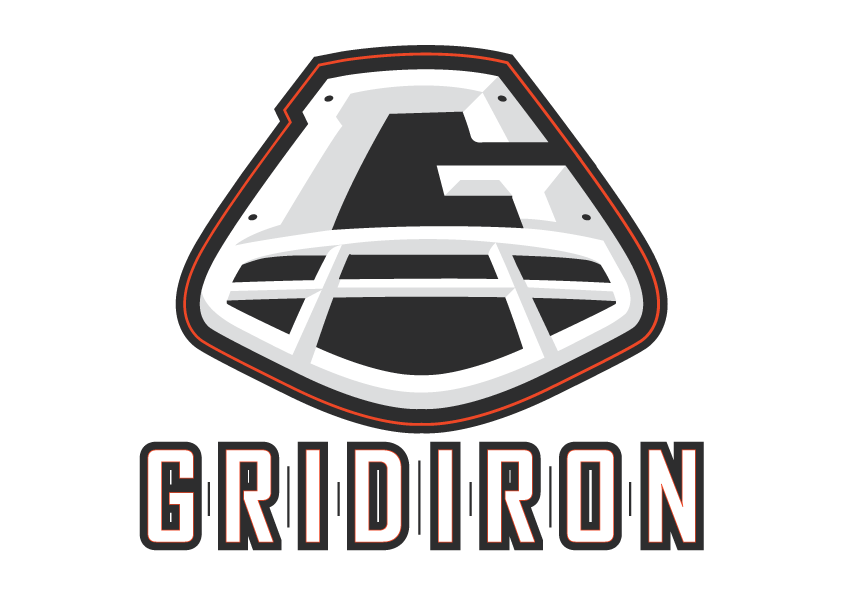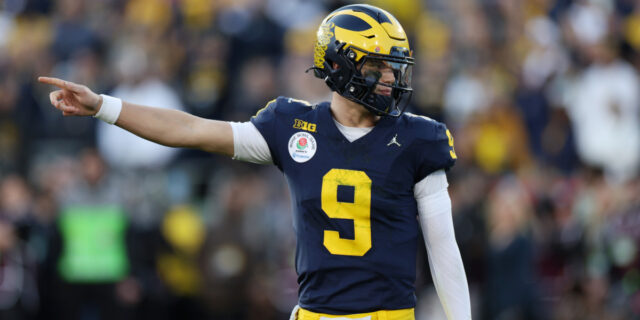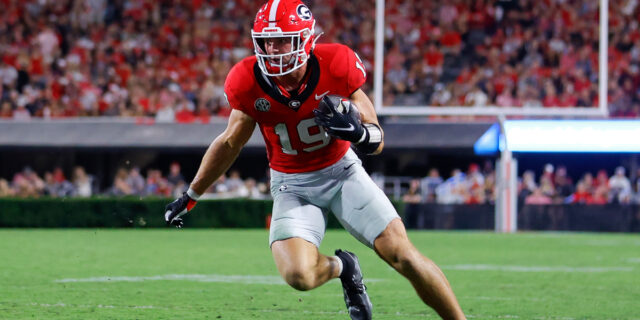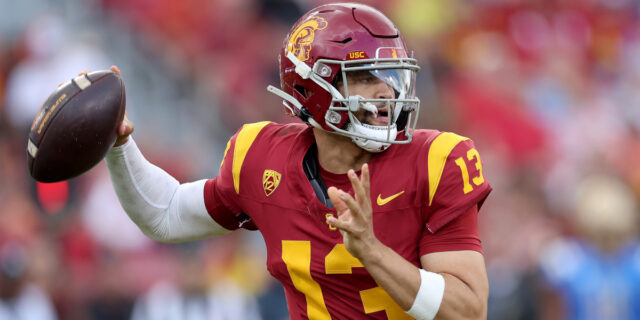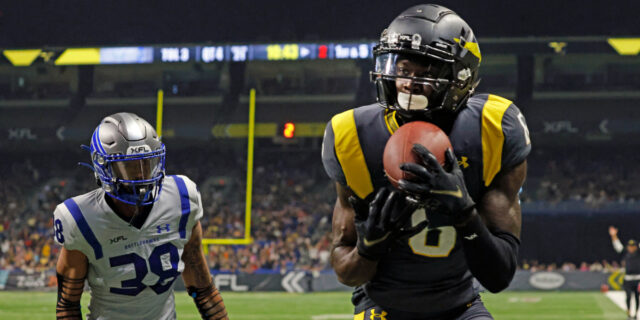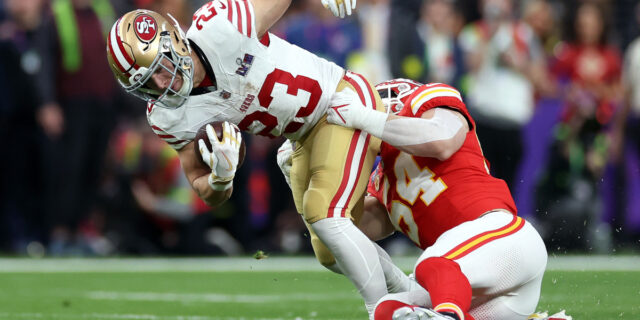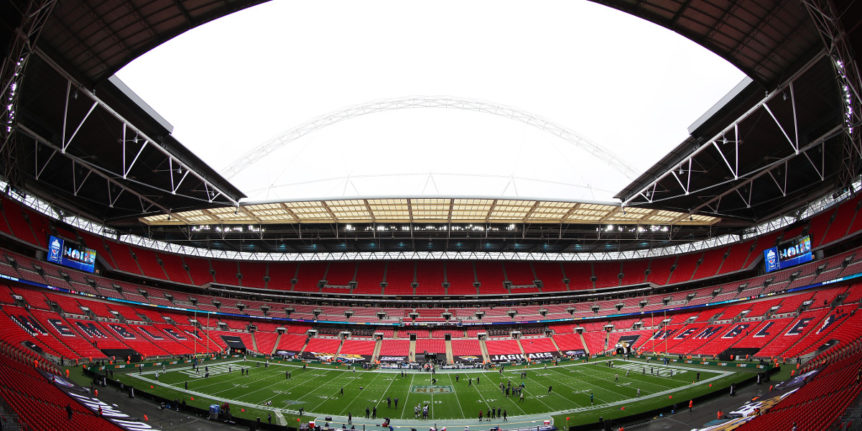
Mister International
This article originally appeared in Issue XXVII of Gridiron magazine, back in 2016 – for individual editions or subscriptions, click HERE
Not many Americans watched the 1966 World Cup final. England’s 4-2 win over West Germany was broadcast on ABC but, between a 10am start in the Eastern Time Zone and the lack of national soccer culture, there was no obvious reason to tune in. And yet, that game might have represented a pivotal moment for the sport’s future emergence in the United States. More improbably, it might also have planted a seed that led, four decades later, to the first NFL regular-season games being played in the UK.
That is because one rare Midwesterner who did make a point of climbing out of bed to turn on the TV on 30 July 1966 was a man by the name of Lamar Hunt. He was curious about soccer, having watched a live Shamrock Rovers game while courting his future wife, Norma, in Dublin three years before. He also happened to be a founder member of the fledgling American Football League, and owner of the recently relocated Kansas City Chiefs.
Hunt passed away in 2006, but today his son, Clark, serves as the team’s chairman and CEO. Although too young to remember it himself, he cites the 1966 World Cup final as a defining moment for his father’s outlook. “Throughout his career, he was involved in many professional sports leagues,” Clark Hunt tells Gridiron by phone from Kansas City. “He’s probably most closely associated with American football, but he was also very involved with soccer in the United States, and the growth of that sport. And his passion for soccer really went back all the way to that World Cup game between England and West Germany in 1966. That’s what really gave him the bug.
“For him, I think there was some overlap. He spent much of his professional career after that bringing what was a foreign sport, soccer, to the United States. And I think it was only natural for him to want to bring a very American sport, American football, to the UK and beyond.”
“Our experience at Wembley has been extremely positive. I think really, the relationship with Tottenham, much like playing a game at Twickenham, is designed to give the league some flexibility.”
Lamar Hunt would help to launch the first incarnation of the North American Soccer League (NASL), which ran from 1968 to 1984, and subsequently did the same for Major League Soccer. More famously, he played a key role in the AFL-NFL merger – even accidentally coining the term ‘Super Bowl’. It was only later in his career that the whole story came full circle, as he became a leading proponent for the NFL expanding its reach overseas.
“My father was very involved with the international effort, going back a couple of decades,” continues Clark. “Of course, the strategy was very different back then, we had NFL Europe, but he was very much a big advocate of it. I think he would have been very excited to see the Chiefs play a game in the UK [as happened in 2015].”
Instead, it has been left to Clark to take up his father’s mantle. Since 2011, he has served as the chair of the NFL’s International Committee – which brings together the views of league officials, team owners, coaches and players to help form plans and policies for taking games abroad.
Like his father, he has a passion for both kinds of football, and finds excitement in the prospect of sharing the American variety – “perhaps the greatest spectator sport, I feel” – with new audiences. The International Series has expanded aggressively in his half-decade as chair, going from one London game in 2011 to three, plus a further matchup in Mexico, in 2016.
From a British perspective, this year’s most important innovation was the playing of one game at Twickenham. The NFL has an agreement in place with the RFU to host a minimum of two more at the stadium over the next two years, and is similarly locked in for at least two games per year at Wembley until 2020.
More intriguing still, though, is the 10-year partnership that the league struck with Tottenham Hotspur, whose new ground has been designed specifically to fit the NFL’s needs. Larger locker rooms and medical facilities are a part of that picture, but the venue’s most dramatic feature will be a retractable grass field, which can be rolled away to reveal a synthetic surface underneath. The latter will be used for NFL games, drastically reducing the reconfiguration time required when the venue swaps between hosting the two sports.
With so many obvious advantages, is it not inevitable that this will eventually become the full-time home for the NFL’s London games? “I don’t think necessarily,” says Hunt. “Our experience at Wembley has been extremely positive. I think really, the relationship with Tottenham, much like playing a game at Twickenham, is designed to give the league some flexibility.
“Wembley has schedule issues associated with the FA and the English national team, and I think the same will be true of Tottenham, which will be hosting, obviously, the Hotspur’s games, but having the flexibility of two or three stadiums allows the NFL to play more games in London and have more flexibility from a scheduling standpoint.”
It is a cautious answer, in keeping with Hunt’s public persona. He is a man who chooses his words with care. As the New York Giants’ president and CEO John Mara recently told the Kansas City Star: “There’s some owners … who get up and speak all the time, and sometimes I think they just like to hear themselves speak. Clark doesn’t do that. When he gets up, he has something to say, and it’s usually something important and carefully thought out.”
Such qualities have doubtless underpinned his rise to positions of influence – not only on international matters, but other areas of league governance as well. He was on the labour committee and NFL management council executive committee during the last collective bargaining negotiation with players in 2011.
So, when Hunt outlines the four key hurdles to the creation of any eventual permanent NFL team in London, you know that these are not to be taken lightly. “I would point to four factors that would really have to come together for it to work,” he says. “First of all, the economic opportunity. And I think, with each passing year, with the success of the series of games that’s being played in London, that question is being answered in a very positive way.
“Secondly would be, stadium availability. And just going back to our conversation earlier about having several stadiums that could host NFL games, I think that creates a flexibility. The third factor would be to have a team, and an owner, who is interested in doing it. And then, the fourth would be bringing the players’ union into the discussion. Because there are a lot of logistical issues for the players and their families that would have to be addressed. So, I think you really have to have those four things come together.”
“Money talks and opinions, on a good many things, can be turned, but certainly it would be naïve to assume that the players’ union will sign up to the existence of London franchise without some hard discussions first.”
The role of the players’ union is one of the ignored factors when many judge whether a UK franchise could happen. Yet it’s a crucial point. Even if a theoretical London team was to establish practice facilities on both sides of the Atlantic, allowing players to train and live on the East Coast of the United States, relocating only for blocks of ‘home’ games, that would still mean a great deal more travel and disruption than could be expected by peers on any other team.
Go into any NFL locker room, and ask players how they would feel about joining a London team, and you will find plenty who are sceptical. Money talks and opinions, on a good many things, can be turned, but certainly it would be naïve to assume that the players’ union will sign up to the existence of London franchise without some hard discussions first.
“Certainly we would want their buy-in on it,” says Hunt. “So, timing’s also an issue. Typically when you’re introducing something new like that, it makes sense to do it at the beginning of a collective bargaining process with the union. And right now we’re in the middle of a ten-year CBA that was negotiated back in 2011.”
If it follows that no such franchise could spring up between now and 2021, Hunt was also quick to stress that the same truth does not preclude a slower schedule. “It doesn’t mean that it would have to happen in year one of the CBA,” he continues, “but really you just have to work out the framework for those issues as part of the CBA process.”
Overall, though, it is certainly possible to detect optimism in his tone. Hunt believes he has seen a “significant shift” in owners’ perspectives when it comes to playing games in the UK. “When we started the initiative eight or so years ago, there were a lot of teams who were very concerned about, from a competition standpoint, the fact that the NFL only has 16 regular-season games, and each of those games is so important in terms of a team’s success and ability to make the playoffs. There were a lot of coaching staffs that were very leery about the long flight, and the toll that would take. Would it affect them, not only in the game they’re playing in London, but also for the next game?”
On such themes, great progress has been made. The promise of a bye week for every team returning from a London game was important initially in cooling such concerns, but this year the Indianapolis Colts became the first team not to take up that opportunity. Although they lost to the Jaguars at Wembley, they were able to overcome the Bears back home seven days later.
“Over the decade that we’ve been playing the games in London [the] avid fanbase has grown very strongly each year. We’re very optimistic about the future.”
For Hunt, the crucial innovation here has been the introduction of earlier kick-off times for London games – since they also allow teams to get home sooner. “I would go back to our experience with the Chiefs last year,” he says. “The team landed into Kansas City at approximately 1 or 2am after the game. Which is not a whole lot different to when we get back to Kansas City when we’ve played on the West Coast.
“It’s a longer flight, and you’ve got the issue of adjusting to the time zones, but really there wasn’t a lot of difference there. Football teams are all about schedule. They have a very regimented schedule that the coaches like to keep them on. Typically it involves a meeting on Monday after the game – but not necessarily practices. So if you can get the team back close to midnight on Sunday night, it’s easy to get the team back on its schedule very quickly.”
Of course, the NFL also has other considerations to make. Just a few days after Hunt spoke to Gridiron, ESPN’s Adam Schefter reported that the league was considering moving the London games back to 1pm Eastern Time, in a bid to boost flagging TV ratings back home.
No doubt that will be a topic of conversation at the next meeting of the International Committee. Also on the agenda will be a continuation of discussions about how to increase subscribers for the NFL’s Gamepass service – which allows fans overseas to stream games on computers and mobile devices.
Hunt identifies Gamepass sales as an important metric for owners in judging the success of the International Series, and says that the London games have helped to drive sales significantly thus far. The league declined a request from Gridiron for precise figures.
“The metric that the league is really focused on is the growth of the avid fanbase in the UK,” says Hunt. “And over the almost decade that we’ve been playing the games in London, the regular-season games, that avid fanbase has grown very strongly each year. We’re very optimistic about the future.”
Recognising how the sporting landscape shifted in his father’s lifetime can only bolster that perspective. Lamar Hunt was a rare American who saw England beat West Germany in 1966, but more than 25 million tuned in to see when the USA won the Women’s World Cup last year. The hope among Hunt and other NFL owners is that their football can continue to enjoy a similar boon on these shores.
This article originally appeared in Issue XXVII of Gridiron magazine, back in 2016 – for individual editions or subscriptions, click HERE
